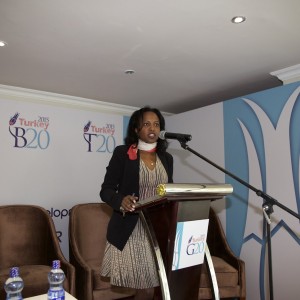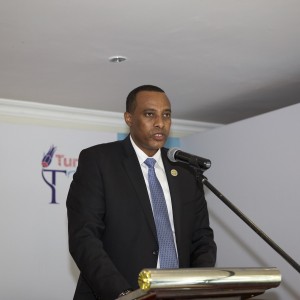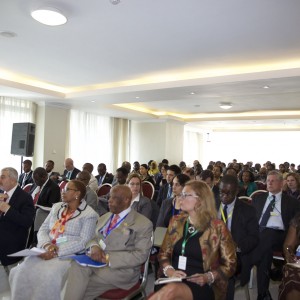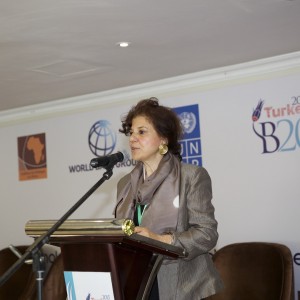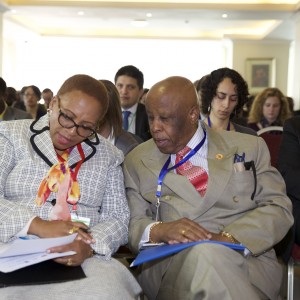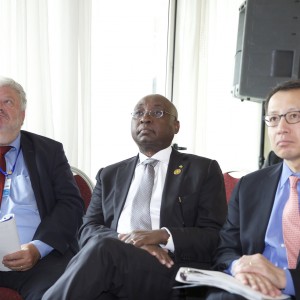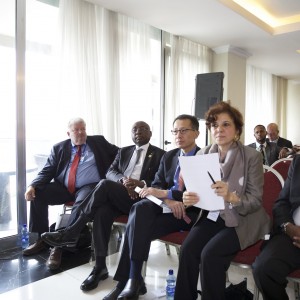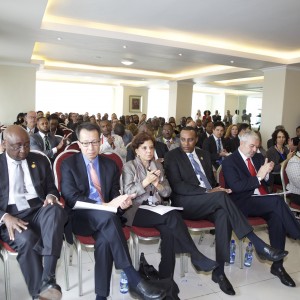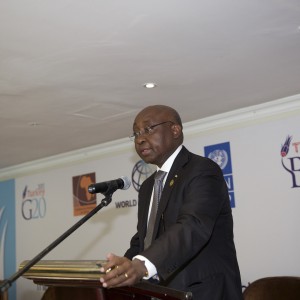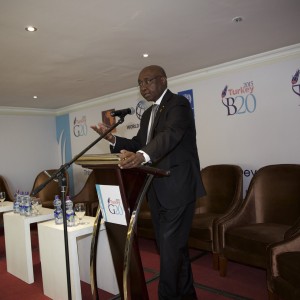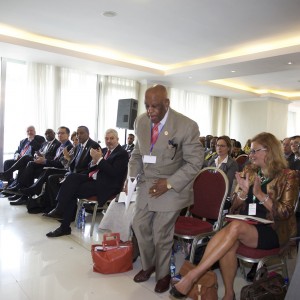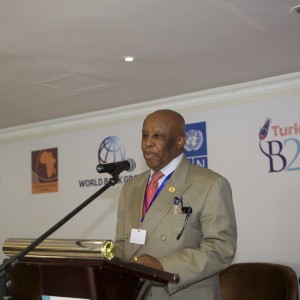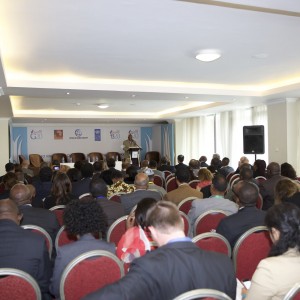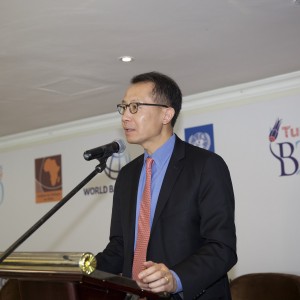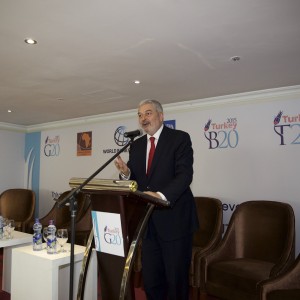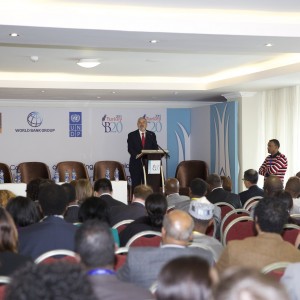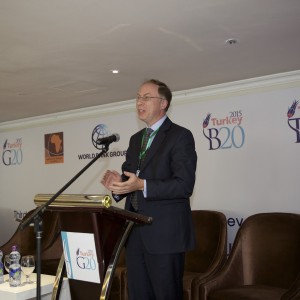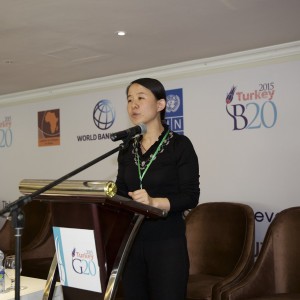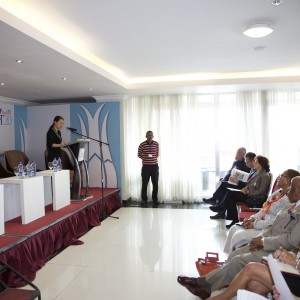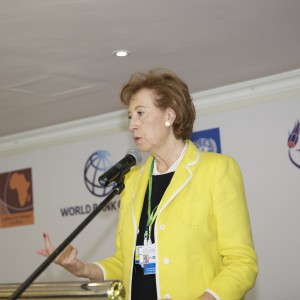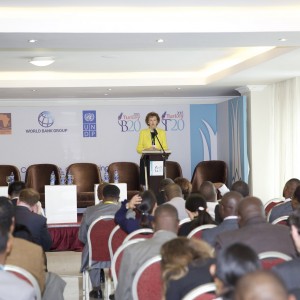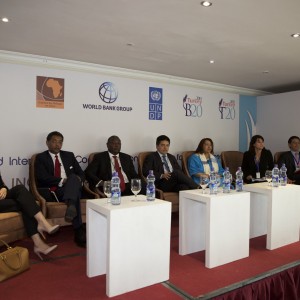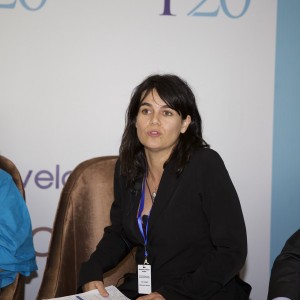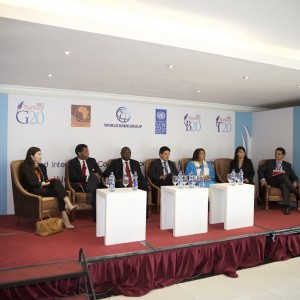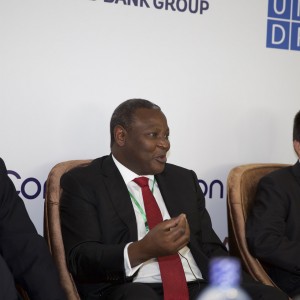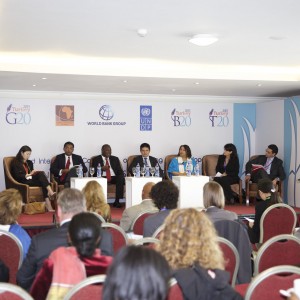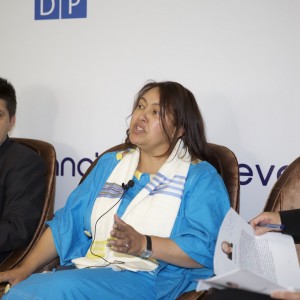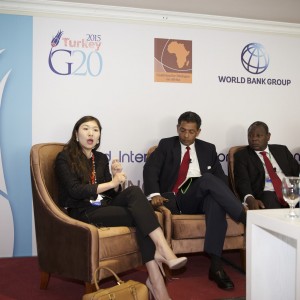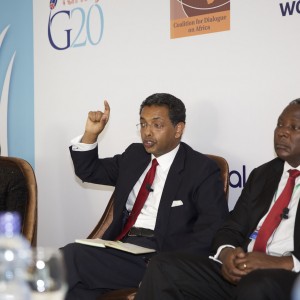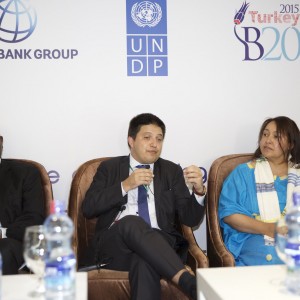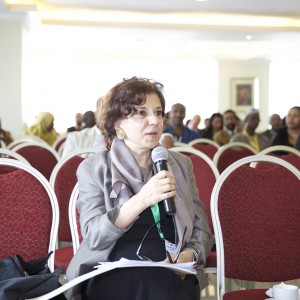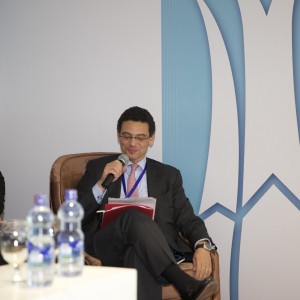Addis Ababa, Ethiopia, 14 July 2015 – On the margins of the Third International Conference on Financing for Development, Turkey, as holder of the G20 Presidency, convened business leaders, senior representatives of multilateral organizations and other high-level participants, to highlight the role of inclusive business in contributing to sustainable development. This event is in the lead-up to the upcoming United Nations Summit in September where world leaders will adopt the Sustainable Development Goals (SDGs).
The event was organized in collaboration with the Coalition for Dialogue on Africa (CoDA), the World Bank Group, the United Nations Development Programme (UNDP), Business-20 and Think-20.
Ambassador Ayşe Sinirlioğlu, Turkey’s G20 Sherpa, emphasized that the G20 Turkish Presidency attaches high priority to development. Part of this commitment includes the development of a G20 Framework on Inclusive Business, a tool for business leaders and policymakers to rally action around inclusive business that identifies bottlenecks and opportunities.
“The G20 Inclusive Business Framework can highlight how inclusive business can contribute to the SDGs by providing case studies in key sectors such as agriculture, energy and water,” Ambassador Sinirlioğlu said during the event. She added that the Framework has the potential to support the G20 engagement in SDG implementation.
UNDP and the World Bank Group have been leading work on the Framework with the support of the International Labour Organisation (ILO) and the Organisation for Economic Cooperation and Development (OECD).
The President of the African Development Bank, Donald Kaberuka delivered the keynote remarks. He underlined that “achieving the SDGs will not only require creating wealth, but also and most importantly creating shared prosperity for all, social justice and ensuring that everyone is a stakeholder in the development process.”
Former Botswana President and Chairperson of CoDA Festus Mogae, stressed that the discussion of the role of the private sector in development is long overdue and welcomed the G20 engagement on this issue.
In her opening remarks, Ambassador Sinirlioğlu stressed that the G20 can enable inclusive business through its members as well as through its convening and mobilizing power. Successful inclusive business cases are already underway, such as the 2012 winners of the G20 Challenge on Inclusive Business Innovation. She said “Inclusive business is good for business and good for low-income communities.”
During the event, Inclusive Business as Contributor to the SDGs Implementation, participants stressed that private sector can have sustainable, positive impacts on low-income women and men’s lives. Inclusive businesses do provide greater access to affordable goods, services and supply chains, while at the same time allowing companies to achieve commercial sustainability and growth.
“All sources of finance, public and private, domestic and international, will have a central role to play in supporting the transformative post-2015 sustainable development agenda” said Magdy Martínez-Solimán, UN Assistant Secretary-General and Director of Policy at UNDP.
“We need to align private investment and innovation with sustainable development. This calls for policy frameworks and regulation that provide the right incentives and market signals. That is where inclusive business comes in. Inclusive business approaches go beyond corporate social responsibility, philanthropy, and impact investment by connecting poor people to markets. They encompass business approaches that directly improve the lives of the poor by making them part of the value chain of companies´ core business as suppliers, distributors, retailers, or customers.”
Jin-Yong Cai, the CEO of the International Finance Corporation of the World Bank Group, stressed the importance of transparent and good business climate, infrastructure, and access to energy and finance for inclusive business. He added that achieving the SDGs will require trillions of dollars and that focus on inclusion is essential.
The high-level segment of the event also included remarks by State Minister from the Ethiopian Ministry of Foreign Affairs Dewano Kedir; Director of the Foreign Aid Department of China Cai Fang; Head of Division on Financing for Development in Germany’s Federal Ministry for Economic Cooperation and Development, Stephan Ohme; former Italian Minister for Education, and now Co-Founder of San Patrignano Foundation, Letizia Moratti; and Director of the McKinsey and Company, Jeremy Oppenheim.
The side-event concluded with an interactive panel discussion. Participants discussed concrete actions the G20 and other governments can take to move inclusive business policies forward and how the poorest and most vulnerable people and other voices can be included in relevant policy making processes. The panel was composed of: Frannie Leautier, Chairperson of Mkoba Private Equity Fund; James Mwangi, Group CEO, Equity Group Holdings; Yohannes Tilahun, Director for Strategy of the Ethiopian Investment Commission; Ussal Sahbaz, B20 and T20 representative and Director for G20 Studies of TEPAV; and Helen Hai, Goodwill Ambassador of UNIDO.
For further information:
Mustafa Osman Turan | G20 Turkish Presidency | mturan@mfa.gov.tr
Rahel Kassahun | CoDA | RKassahun@uneca.org
You can download the concept note, programme and speaker biographies of the side event here.

